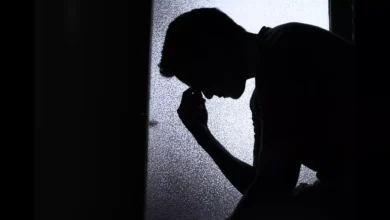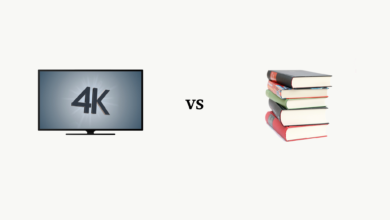Meet the male influencers fighting back against Andrew Tate and toxic masculinity

Welcome to The FWD: the conversation of here and now. Pass it on.
What immediately strikes you about Ben Hurst is that any man would want to look like him, to move like him, to attract attention like him. Any straight woman would want to be with him. He’s tall and articulate, handsome but approachable, both a man’s man and a woman’s man. Hurst is a masculinity educator. His job is to talk to boys and young men about what it means to be a man. Which is why on this summer’s day we’re at a school in London (which I’ve agreed not to name), where Hurst is set to host a workshop on manliness. Or how to be a good man, and whatever that means.
The boys act like boys: feral and uncontained by the playground in which they’ve been instructed to line up. Hurst stands at the front, looking like an off-duty PE teacher: grey trackies, slip-on Vans and a hoodie, offset with a pearl necklace and sunglasses. While the boys – 15- and 16-year-olds – jostle and call out mean nicknames, they ignore the writer in their midst, which I’m grateful for. I admit to Hurst that I have always felt unsettled around teenage boys. They’re Freud’s id in a hormonal mass; no longer innocent children but without the moral compass of men. Anything could happen at any moment that might shape their entire psyche and have consequences for the rest of their lives.
“Kids are super malleable,” Hurst replies. “Do you know what I mean?”
Inside the classroom, the boys arrange the chairs in a circle. They’re apprehensive around their new facilitator. Naughtier boys make spicy comments to win his attention. “Bet you don’t even watch TV,” says one boy to Hurst, while they’re talking about what they like to watch. “You been in my house?” he retorts. A teacher couldn’t command this respect, neither could a parent. Hurst is used to a cynical audience, and understands young men as well as anyone. It occurs to me that Hurst has the potential to be the closest thing to an anti-Andrew Tate figure we’ve got in Britain.
Hurst asks the class to introduce themselves one by one and to say how they’re feeling. The one rule is they can’t say “hungry”, “tired”, or any variation of “fine”. Each of them, of course, shrugs that they’re “hungry”, “tired” and “fine”.
What are men expected to be? Hurst asks. Slowly, and only when prompted, the boys give a list that Hurst writes on the board: strong, no emotions, provider, dominant (in sex and work and family life), intelligent, intimidating, alpha. “Women want men that look cut, innit,” one says.
Who expects men to be these things? Women, other men, society, their parents.
Who feels like they already possess those qualities? None of them put their hands up.
The list could have been taken from an Andrew Tate post. Since his emergence in 2016, Tate – the self-styled “top G”, currently in Romania awaiting pre-trial evaluation of charges against him including rape and human trafficking (accusations which he has denied) – has become a shorthand for a certain kind of regressive hypermasculinity.
The influence that Tate has on young men can’t be downplayed. Nearly eight in ten 16-17 year-old boys in the UK have watched Tate’s content, according to a survey by the anti-extremism group Hope Not Hate, with just over half viewing him in a positive light. For many boys, he is more recognisable a face than the Prime Minister. Before Tate was banned from TikTok last August, videos with the hashtag #AndrewTate had been viewed on the platform more than 13 billion times. Female teachers report male students mimicking his teachings in class, and in some cases outright refusing to be taught by a woman.
“I’m not naturally an early adopter,” Hurst says. “But with Andrew Tate we had to be because he was coming up so much in boys’ conversations.”
It’s not just Tate that Hurst has had to be educated about: there’s a host of other toxic and toxic-adjacent personalities emerging from the “manosphere” – the self-help tinged, often misogynistic corner of the internet – into mainstream culture. Like the creators of Fresh & Fit who claim to host the number one men’s self-improvement podcast in the world, and have said that being monogamous is a woman’s job, while it’s “natural” for men to sleep around, and highlighted various “tricks” that women use to get money out of men. (Fresh & Fit did not address GQ’s request for comment). Another is Hstikkytokky, a British fitness influencer, who has claimed that mental health is “just another excuse to be average” and that Black girls are “clapped” (ie ugly, have slept with many people) and “butters” (very ugly). (He later apologised for and retracted the latter comments.) Hurst does a surprisingly good impression of Hstikkytokky vlogging as he flips a water bottle in one hand. “I banged two birds and ran out of money,” he says, mockingly, then looks back to the boys. “What is it about these men that entertains or interests them? That’s the big question.”
Hurst tends to meet five types of children. There are the uninterested, who don’t know why all this relates to them; the sceptics, who pick apart everything (these are Hurst’s favourites, because they’re ready for debate and learning is predicated on honest conversation); the attacked, who are already at their limit being told men are inherently toxic (they tend to be the ones who say women expect macho qualities of men, Hurst says); and the engaged, a small group who probably have politically-minded parents, who want to be helpful but aren’t yet sure how. Then there is the group that Hurst relates to the most: the confused. “They don’t disagree, but they just don’t get it,” he says. “They’re like: ‘I don’t know what I’m supposed to think. Everybody says what I think is wrong, but I don’t really understand why.’”
Source link




